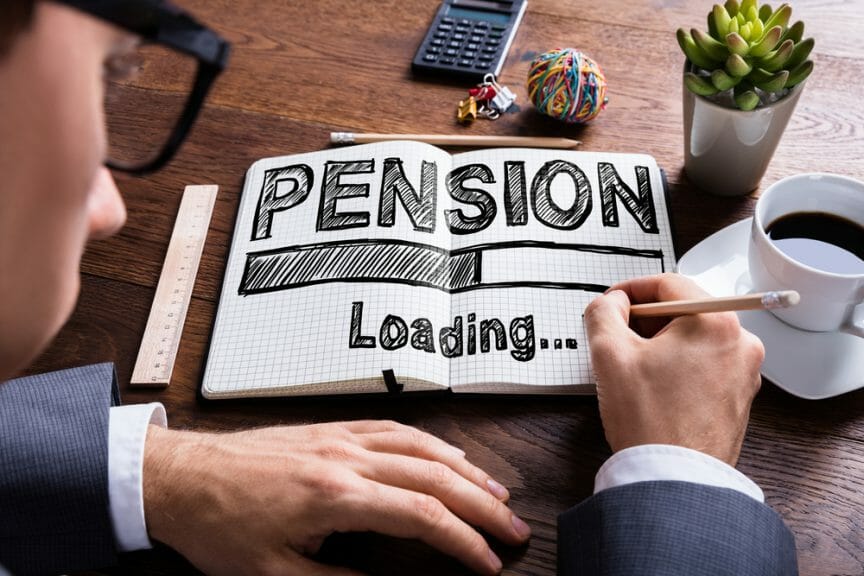Strikes, protests and shouts of anti-democracy. What was the 2023 pension reform in France all about? What sparked the outrage? Where did it all end?
At its simplest, the pension reform in France was the proposal to raise the legal age of retirement from 62 to 64… and outrage followed. There are, however, a lot of factors involved to understand why this proposal sparked so much anger in the French population.
Understanding The French Pension System
France has one of the lowest retirement ages in Europe, and the pension reform only suggests a two-year rise in age. How can it spark so much outrage in the French population? Because it is not as simple as that.
In France, you would need to fulfil two requirements to be able to retire with a full-rate pension: the legal age of retirement and the “duration of contribution” (la durée de cotisation). The duration of contribution is the minimum years that you need to have spent on the job market. This used to be a minimum of 41-43 years. If you have not spent this amount of time working, you cannot retire with a full-rate pension. You would have to wait until you reach the age of 67.
A Universal Collective Pension System
This is because France has a universal collective pension system. In other words, everyone finances the pension of everyone. As such, everyone has to spend a minimum amount of years paying towards the public retirement fund. With the new pension reform, this is now a minimum of 43 years. This means that in order to retire, you must not only have reached the age of 64, but you must also have spent a minimum of 43 years on the job market. Regardless of the legal retirement age, everyone has to spend two more years working in total.

As such, the pension system penalizes anyone who delays their start on the job market or who needs to take a break from working. If you plan on going traveling in your 20s, you will automatically have to retire later in life. It is not enough to get older; you have to make up for the time where you did not work. However, it is not just a matter of people generally wishing to take a break from the job market throughout their life for personal development. There are sometimes external things that force people to work less than they might otherwise have wanted to.
The Losers Of The New Pension Reform
The French pension system particularly puts women at a disadvantage. Women generally receive lower pensions and retire later than men. According to DREES in, women’s pensions are in average 40% lower than men’s pensions. In average, women would receive €967 euros (gross) per month, whereas men would receive €1617 (gross). You can read the statement here. Women’s salaries are generally lower than men’s, and women generally work more part-time. They are more often expected to take care of children and sick family members. Overall, women’s careers are often disrupted because of these socially structural expectations.
However, it is feared that the new pension reform might further this inequality between men and women. Euronews.com informs in an article that the current pension rights “allow women to leave at 62 and receive the full pension rate if they took their full maternity leave. But Macron’s pension reform will no longer take this maternity leave into account which means mothers will have to wait two more years before retiring.”
Another category of people who are more impacted by the new pension reform is the people with physically or mentally hard jobs such as artisans or nurses. It is much more difficult for them to work a minimum of 43 years, and yet it is the politicians who are pushing through the pension reform despite the anger of the people. “For the president, it’s easy. He sits in a chair … he can work until he’s 70, even. We can’t ask roof layers to work until 64, it’s not possible,” said Isabella Texier, bus driver, to Reuters during a protest in Saint-Nazaire. You can read the rest of the article here.
The Argument For The Pension Reform
The universal pension reform is challenged by the shift in the French demography. People generally live longer, which creates an unbalance in the pension system. There are more pensioners than there are salary workers who are paying towards the public retirement fund. In order to keep a universal pension system, Macron argues that a rise in the legal retirement age is unavoidable.
However, the proposal for pension reform did not come out of the blue. Already in 2020, Macron planned to reform the pension system arguing for the survival of the universal pension system. The proposal was met with heavy resistance and strikes. The plans were abandoned because of Covid-19. In early 2023, the plans returned.
Read this article here to see an example of how Macron has otherwise used foreign affairs to strongly position himself on the domestic scene.
The Protests and Strikes Against The Pension Reform Proposal
Macron’s proposal was immediately met with resistance from union laborers, who began mobilizing massive demonstrations and strikes against the proposal.

19th of January
According to the police, there were 1.12 million demonstrators. 80,000 of them were in Paris. Over 200 demonstrations were reported throughout the country. More than 10,000 policemen and gendarmes were mobilized to maintain order. 3500 of them were in Paris. The strikes disrupted train services, flights, schools and businesses. Eight of the largest unions took part in the industrial action.
31st of January
The day after the bill was introduced to the National Assembly, there were even more protesters: 1.27 million with 87,000 of them in Paris. Laurent Berger, leader of CFDT, France’s largest union, told Reuters ahead of the Paris March: “It’s better than on the 19th. … It’s a real message sent to the government, saying we don’t want the 64 years”.
16th of March
The Guardian reported in an article: “Transport workers, energy workers, dockers, teachers and public sector workers, including museum staff, have held strikes. A rubbish-collection strike is continuing and has led to more than 7,000 tonnes of waste building up across half of Paris.”
In the midst of protests and strikes, Macron also faced political resistance from almost every side.

The Special Power of Article 49.3
On the 16th of March, the vote on the bill of the pension reform was scheduled to take place in the National Assembly. However, Macron, well-aware that the bill lacked political support, invoked article 49.3 of the French constitution at the last moment.
Article 49.3
The article 49.3 is the government’s “trump card”. It allows the government to bypass the National Assembly and pass a bill without a vote. However, it isn’t without consequences. If the government invokes article 49.3, the lawmakers can file for a no-confidence vote within 24 hours. It’s either a “trump card” as well as potential “self-destruct button”.
Prime Minister Elisabeth Borne went on to announce the invoking of article 49.3 in the parliament. However, opposition MPs booed and jeered and left-wing lawmakers began singing the Marseillaise—the national anthem—to prevent her from speaking. The session had to be suspended to restore order in the parliament. You can see the video from the parliament here.
France24 writes here: “Prime Minister Élisabeth Borne’s minority government is hardly the first to use Article 49.3, which has been triggered 100 times since 1962. Seldom, however, has it been used to ram through a reform of such scope and so vehemently rejected by the public.”
Macron Attacked From Every Every Side
Politically, Macron was attacked from every side, as the move was denounced by politicians from the entire political spectrum. Both Marine Le Pen from the far-right Front National and Fabien Roussel of the far-left French Communist Party announced that they would file for a no-confidence motion. France24 stated that conservative MPs, whom Macron had relied upon for support in votes, quickly rebuked the government, “warning that its move would radicalize opponents and undercut the law’s democratic legitimacy”.
Nevertheless, the bill went through and it was officially signed by Macron on the 14th of April. Since then, Macron’s tour of France was often met with protesters. Large protests were seen across the country all the way into the month of June. There have also been multiple efforts to threaten the upcoming 2024 Summer Olympics if Marcron does not withdraw the pension reform.
Only the future can tell us if the pension reform will indeed save France’s universal pension system or if the reform has put more people at a disadvantage and weakened the trust in the democratic system.














